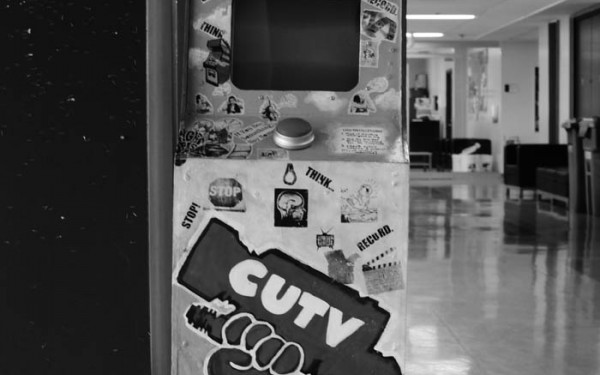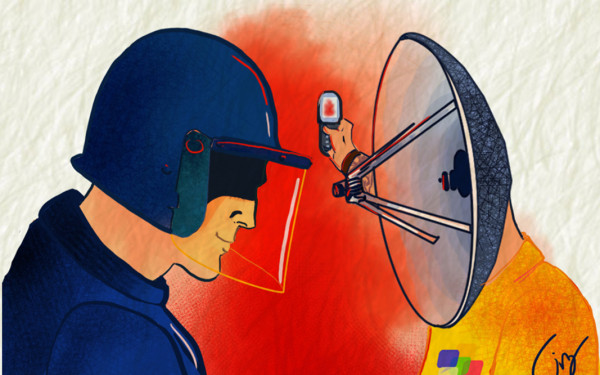Covering Cops
Crime Beat Reporter David Goldberg Opens Up on Access
What a time to be covering the cop beat.
Reporting in a world where citizens upload footage to the Internet in real time, where “media blackouts” permeate clashes of peaceful resistance movements, and where actions of lieutenants like John Pike—the now-infamous ‘Pepper Spraying Cop’ who maced the faces of student protestors on the UC Berkeley campus Nov. 9—send viral shockwaves around the world, finding a journalist on the ‘inside’ doesn’t seem to be the norm these days.
But for crime reporter David Goldberg, who writes for the Montreal-based Free Press it has taken 22 years to “cultivate the trust” required to get in with the local police.
He’s a rare breed.
“If you really upset the cops, they may never speak to you again, and they know they don’t have to,” Goldberg told The Link. “You can upset politicians, but they’re always going to come back around because they know they need the media. Cops don’t.”
Through experience at his local newspaper outfit, Goldberg explained that developing a rapport with the police was necessity, as he was dealing with the same people week-in, week-out. “I had to get them to trust me, and I also had to make sure that I could trust them—it’s a two-way street,” he said. “So I got to the core of the two issues that I’ve been told [police] have with the media: that they don’t like journalists and that the media, by and large, is just out to make them look bad.”
While he admitted that cops do things all the time that warrant bad press, and that examples like the Pepper Spraying Cop at UC Berkley don’t exactly help their image, Goldberg’s access is better than most—even when he’s critical—because of his approach.
While an attitude of distrust makes it increasingly difficult to navigate the media relationships necessary between journalists and cops, Goldberg had some advice: show them you’re fair.
“I tried to let them know I’m not the enemy,” he said. “Let them know, ‘Look, you’re serving the community as the police, I’m serving the community as a journalist, and there’s no reason why we can’t work together to promote both of our goals.’ That’s the tack I’ve taken. And it’s worked.”
Goldberg acknowledged that, because he’s on friendly terms with many of the police he works with after so many years on the beat, he constantly has to “double and triple check” his conduct and his work, while also maintaining his relationships and access.
“There are times where, yeah, it’s very hard to police yourself when you’re covering this type of stuff, pardon the pun,” he said.
“But when I have an issue, I talk with other journalists, I talk with my editor, and I work it out ethically. I don’t think I’ve done anything egregious and I don’t cross that ethical line—maybe I nudge up to it from time to time—but the most important thing is that I’m serving my readers.”
Journalists should also attempt to understand the many aspects of police work, he said. “If you’re going to write intelligently about the police, before you attack something that’s done, at least try to figure out why they’re doing what they do.”
But fairness goes both ways, he continued. “I think that police have a responsibility to learn a little bit more about what journalists do, too.”
“This mistrust is usually born out of misunderstanding—and it’s difficult because the police are a closed system that don’t like to talk a lot about what they do,” he said. “But if you can convince them you’re not there to harm them, and to figure out what their job is really about—as they do put up with a lot of stuff—it will really make a difference.”
The bottom line for Goldberg is that a reporter is never ‘one of them’—even if this was an aspiration of many investigative journalists from years past.
“You have to criticize them when they don’t do things properly, absolutely,” he said.
“We’re here to let the public know what’s going on, good or bad. But you have to go into the story, and show you’re going into the story knowledgeable and unbiased about what you’re writing.”







